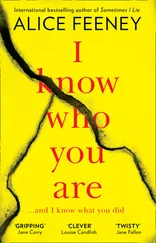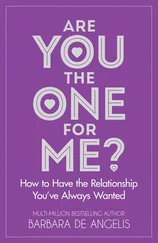Before they departed for the Soviet Union, the Joneses had invited me to join them on the Martha’s Vineyard vacation they’d planned for August. A lot of kids we knew summered on the Vineyard, and in her eagerness to fit in with the Washington establishment, Mrs. Jones persuaded her husband to rent a house in Vineyard Haven. We were scheduled to depart a week after they returned from their Soviet tour. I’d been looking forward to the trip all summer. I’d never been to the Vineyard. Thanks to my mother’s travel anxiety, I’d hardly been anywhere at all. I hadn’t even been to London to visit my dad. I longed for a passport crowded with exotic stamps. After I found my letter in Jenny’s room, though, I began to dread her return. I hid it under my mattress and waited. I remember passing much of the next week at the local tennis courts, hitting furiously against the backboard, alternating forehand and back-, changing my grip, and trying to keep my swing steady as I eyed the ball and listened to the thwack.
* * *
JENNY CALLED ME the day after she returned at the end of July. “I’m back!” she said when I answered the phone.
“I know,” I said. “I saw you on TV.” Her arrival at Dulles was even better documented than her departure.
“Tell us about the Russians,” the reporters said, and Jenny obliged them.
“Everyone in the Soviet Union is so friendly. They all want peace.” It was a refrain she’d repeat until her death.
She was an effective Soviet propaganda tool, even if she was an unwitting one. It was as though the Russians were already looking for a photogenic American girl to ship off to Pioneer camp and promote Soviet values. Cynics—especially hawkish conservatives—argued that Jenny probably didn’t write the letter herself. Some said her parents had put her up to it; others went so far as to suggest a Soviet conspiracy. My mother and I watched the pundits argue on TV.
“Issue one,” said John McLaughlin. “Jennifer Jones: too good to be true?”
Maybe she was.
* * *
I TRIED TO FIND a way to bring up my unmailed letter before we left for Martha’s Vineyard. I rehearsed what I might say: Can you explain why this was behind your bulletin board? But I could predict her retort: What were you doing nosing around my room? I kept waiting for her to notice that my letter was missing from its hiding place. I was sure she’d call and demand an explanation. I hoped she’d broach the subject. There might be a perfectly good explanation. I tried to act as if nothing had changed. I’ve never been good at confrontation. I didn’t want to lose her.
I climbed into the back of the Joneses’ Volvo sedan for the long drive to the Vineyard ferry. They had traded in their Chevy wagon a few months before, and now the name of our school was stuck on the rear window of their new car, as on the Volvos of all the other parents. Mrs. Jones had ordered freshly monogrammed tote bags for the trip. Jenny’s said JAJ. Her middle name was Anne. My mother and Pip watched the car as we pulled away from the curb. I could see her lips silently form a warning: Be careful.
It takes nearly ten hours—without traffic—to get to Woods Hole and four hours into the drive we were still creeping up the New Jersey Turnpike. Mrs. Jones worked on her needlepoint while Mr. Jones gripped the wheel. Jenny was never satisfied with the temperature. “Max high!” she cried when she wanted her mother to turn up the air conditioner, and when the icy blast became too much to bear, she whined, “It’s cold. ” She also assumed an insufferable worldly pose. “You haven’t tasted tea until you’ve had it from a samovar,” she said. “There’s no traffic in the USSR,” she sighed later. “There are also no backyard swimming pools,” said her dad. I tried not to laugh.
“Time for a pit stop,” said Mr. Jones when he jerked the car into a rest area. Inside at McDonald’s he ordered a nine-piece Chicken McNuggets for Jenny and me to split. “But it’s not fair. One of us gets only four,” said Jenny. She was especially concerned about fairness since falling under the Soviets’ spell.
“Cut one in half,” said her mother. So we used a flimsy plastic knife to divide one McNugget and then sat across from each other and hardly spoke as we ate.
“What’s wrong with you?” she asked me.
“Nothing,” I said. Everything, I thought.
Many of the details of the rest of the week are fuzzy. I know that we went to the lighthouse at Gay Head and ate lobster rolls at sunset in Menemsha. There were a few days with Mrs. Jones on the beach. Mr. Jones didn’t like sand, so he whiled away his hours elsewhere. Jenny was recognized only once that week: in a store, the clerk grabbed my arm and said, “Is that the girl who went to meet the Russians?” I nodded. The woman asked for Jenny’s autograph and then gave her a free hermit crab. “Something to remember the Vineyard,” she said. The crab’s shell had been painted an iridescent blue and it glowed as he clawed up and down the mesh walls of his small cage.
I still have a picture of us ferrying to the island: Mr. Jones snapped it as the boat neared the harbor at Oak Bluffs. We had scrambled up to the bow for a better view, and Jenny was pointing at the docks. The photograph has yellowed with age, so the sky is no longer the evening pink I remember. It was the start of our vacation, and we weren’t yet sick of each other. By the end of the week, though, I couldn’t wait to get home. Being with someone else’s family can make you feel like a hostage, to their diet and schedule, their idea of etiquette, their variations on board-game rules. I was tired of straitjacketing my emotions.
One afternoon when Mr. and Mrs. Jones were playing tennis, Jenny said she had something to show me. I followed her into her parents’ room. She lifted up the mattress and pulled out a copy of Playboy. On the cover a naked woman posed in a pile of jelly beans, with jewels of candy strategically placed over her nipples and between her legs. “It makes me think of Ronald Reagan,” said Jenny.
“Why?”
“Because he likes jelly beans,” she said. “Duh.” This was true. At Christmastime the White House sent commemorative jars of Jelly Bellies to friends and donors. More than a few of our classmates’ parents had received them.
“Look,” said Jenny as she opened the magazine. “The centerfold.”
I knelt beside her on the rug and looked at the woman. Her pout was at odds with the bubbly handwriting on her questionnaire. I don’t remember her name, but I know that she dotted her i ’s with hearts. Her skin was golden and waxy, like a piece of fruit. She was wearing lacy white kneesocks and nothing else. “Her boobs are huge,” said Jenny.
I had never seen Playboy before. The generic shame it produced made me queasy. “Whose magazine is this?”
“My dad’s,” said Jenny. “He always hides them from my mom.”
I didn’t want to know this about Mr. Jones. “It’s gross,” I said. But it was also exciting, in the way that only secrets can be. “We should put it back.”
So Jenny returned it to its spot under the mattress. And I almost asked her what she was hiding in her room at home, but we heard the car pulling in to the driveway and ran out to the porch to greet her parents.
On the last night, I couldn’t sleep and overheard Mr. and Mrs. Jones fighting from their bedroom next door. I could hear the trilling, eager voice of Mrs. Jones, though her words were muffled. Then Mr. Jones barked, “Goddamn it, Linda, I’m tired of hearing about what you want. Want, want, want. Jesus. Do you have any idea how much moving to Washington has cost us?”
Читать дальше












